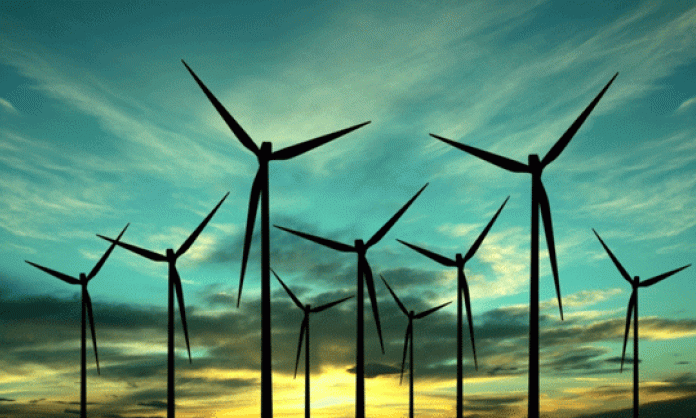Five trillion US dollars annually – that’s how much is being lavished in various forms of subsidies on the global fossil fuel industry, according to a recent report by the International Monetary Fund (IMF). US$10 million a minute – more than the health budgets of every country on earth combined.
We’re told that there’s not enough money for decent health care, education or welfare. But the equivalent of 6.5 percent of global GDP is being poured into an industry that’s driving the world to social and environmental catastrophe.
The shocking findings of the IMF’s working paper, “How large are global energy subsidies?”, are based on calculations of the true cost of fossil fuels when all their destructive environmental, health and other impacts are taken into account – what in economic terms are called “externalities”.
The most obvious of these externalities is climate change. Phenomena such as rising sea levels, increasing intensity and frequency of extreme weather events (droughts, floods, cyclones) and bushfires are already costing the world hundreds of billions of dollars annually.
But even this, according to the IMF’s analysis, is only a small part of it. The larger portion of the hidden costs of fossil fuels relates not to climate change, but rather to more “everyday” impacts such as the negative health effects of air pollution.
Astoundingly, the headline figures coming out of the working paper – subsidies totalling US$4.9 trillion in 2013, rising to US$5.3 trillion this year – are likely to be a significant underestimate. For a start, the IMF based its calculation of the cost of climate change on a highly optimistic US government model. The list of damaging impacts of the fossil fuel industry could also easily be broadened. A strong case could be made, for example, that the cost of wars associated with global competition for fossil fuels should also be included.
Who should pay?
The IMF’s report is useful in laying bare the immense hidden costs of fossil fuels. But, unsurprisingly given its role as one of the leading institutions of global capitalism, its conclusions are questionable to say the least.
To the IMF and institutions like it, the profits of big business are sacrosanct. The idea that a portion of the hundreds of billions of dollars reaped from fossil fuels should be used by governments to address “externalities” like climate change is, from their perspective, contrary to economic good sense.
What the IMF finds most disturbing is not the fact that people are enriching themselves at the cost of society and the environment. The most shocking thing is that workers and the poor might not be paying our share. And funnily enough, it turns out that, as the IMF sees it, our share is pretty much all of it.
The main problem, we’re told, is that the price paid by consumers for basic commodities like electricity, petrol and gas is too low. The “efficient consumer price for an energy product” should, they argue, incorporate the cost of all the damaging impacts of fossil fuels. Significantly, when it comes to the “efficient producer price” (i.e. the price paid for energy products by the fossil fuel industry itself) any incorporation of externality costs is ruled out in advance because “efficient taxation requires that only final consumption by households is taxed”.
According to the report, for fossil fuel prices to genuinely reflect the overall cost to society, they would have to rise dramatically – by more than 200 percent in the case of coal. All forms of government subsidies to consumers should be scrapped and additional steep consumption taxes should be imposed.
Flawed assumptions
The cost to the world of fossil fuel production and consumption is, as the IMF report shows, much higher than the price being paid. It’s also true that the trillions of dollars that could be raised by bringing the two into better alignment could very usefully be used not only to address the damage caused by the industry, but to drive a shift to a better, more sustainable economy and society.
Based on this, and when seen in the terms set by the neoliberal economic framework that dominates politics today, it can seem as if charging consumers more for environmentally damaging products is the only way forward. That’s why, for example, so many people were outraged when, in the aftermath of the 2014 budget, the Greens decided to vote against the Liberals’ proposal to increase the tax on fuel.
One of the main aims of the IMF’s report is, clearly, to provide the kind of “evidence base” for this sentiment, which can influence the outcome of negotiations at the United Nations Climate Change Conference in Paris later this year.
But if we take a step back from the prevailing “logic” of capitalism, which dictates that the profits of industry must be protected at all cost, it is far from clear why it should be workers, rather than the super-rich minority at the top of society, who pick up the tab.
Why should people who have had no say in developing or operating these industries be forced to bear the cost of the damage they cause? Why should the CEOs, executives and investors in multinational oil and coal companies be allowed to continue to reap windfall profits, while those who already struggle to pay their bills shoulder an ever greater burden?
Given the structure of the economy and society today, the consumption of fossil fuels – the electricity and gas needed for heating and cooking or the fuel needed for your car – is not a “choice” in the same way as, say, picking the brand of cereal you want to eat for breakfast.
This is clear even in the most developed countries like Australia. People living in the outer suburbs of cities like Melbourne and Sydney cannot, in all but the most exceptional of circumstances, afford to do without a car. In developing nations, obtaining the small amounts of fuel needed to cook and heat your home can literally be a matter of life or death.
This is a situation that the “captains of industry” have more or less consciously fostered over the course of the last century, and continue to foster to this day. Infamously, in the US in the 1930s and 1940s, a number of oil, tyre and car companies conspired to buy up and rip out public transport systems in order to entrench car use. These days they might not be so brazen, but they continue to throw millions of dollars, for example, into lobbying against any serious efforts by governments to upgrade public transport at the cost of new roads.
Tax the rich
There are already clear alternatives to fossil fuels. A 2011 report by the World Wide Fund for Nature estimated that to achieve a 100 percent renewable world energy system by 2050 would require an investment of no more than US$4 trillion a year.
If the majority of people on the planet had any real say over what goes on in our society we would already be well on our way down this path. The fact that we’re not reflects the reluctance of the rich and powerful to give up on fossil fuel and other industries on which their immense wealth and power are based.
They’re the ones who created the global fossil fuels behemoth. They’re the ones who derive the lion’s share of the benefit from it. And they’re the ones who should pay the price for the damage it has caused.
While US$4 trillion might sound like a lot, to the world’s ruling class, it is little more than peanuts. A 2011 report by the Tax Justice Network found, for a start, that US$3.1 trillion is lost to tax evasion annually. In 2012 the same organisation reported that, on conservative estimates, between US$21 and US$32 trillion in private financial assets are stashed away in offshore tax havens.
Closing the loopholes that allow the world’s super rich to get away with this would get us most of the way there. If more were required, it could be garnered from doing away with the tens of billions of government subsidies direct to fossil fuel companies, and by increasing taxes on the hundreds of billions in profits that flow from the industry.
For the likes of the IMF, all this would, of course, represent the height of economic irresponsibility. For the rest of us, and above all for the planet on which our lives depend, it is just common sense.











